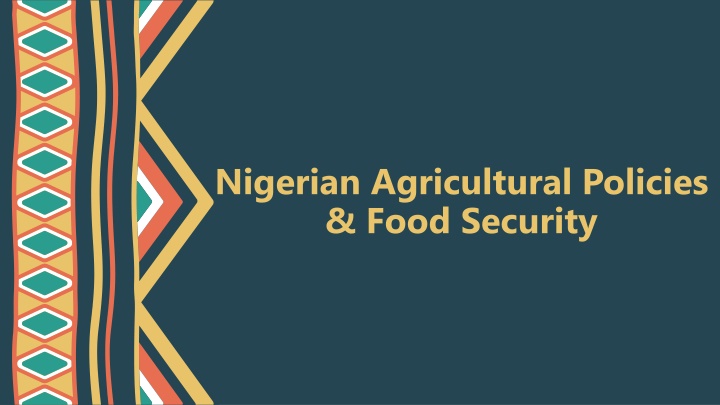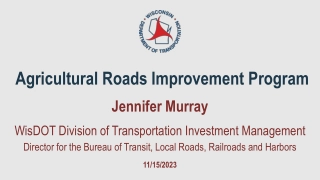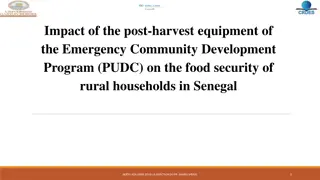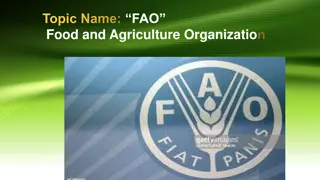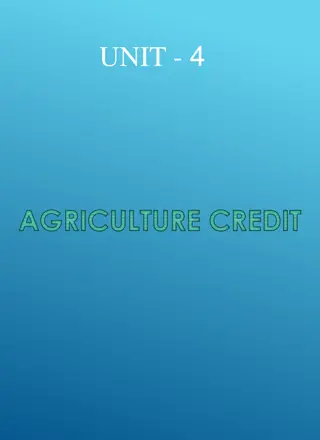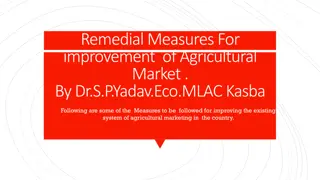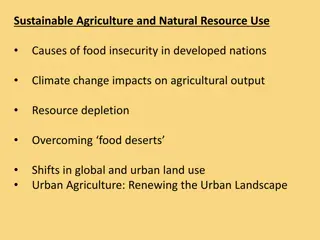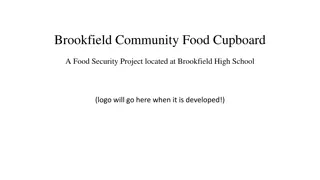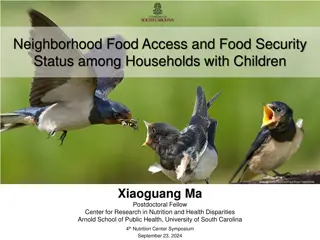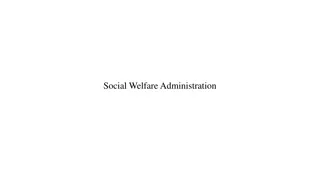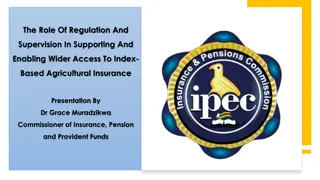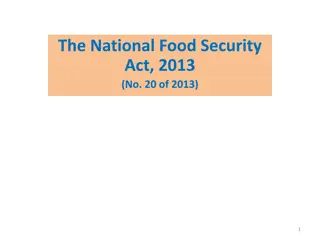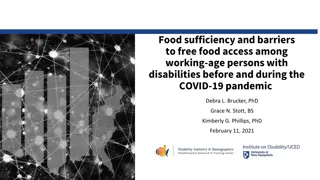Nigerian Agricultural Policies & Food Security Research
Doing research into Nigerian Agricultural policies and Food Security including analysis of implemented policies, key sectors like dairy, maize, cassava, horti, and rice sectors, challenges faced, and potential investment opportunities.
Download Presentation

Please find below an Image/Link to download the presentation.
The content on the website is provided AS IS for your information and personal use only. It may not be sold, licensed, or shared on other websites without obtaining consent from the author.If you encounter any issues during the download, it is possible that the publisher has removed the file from their server.
You are allowed to download the files provided on this website for personal or commercial use, subject to the condition that they are used lawfully. All files are the property of their respective owners.
The content on the website is provided AS IS for your information and personal use only. It may not be sold, licensed, or shared on other websites without obtaining consent from the author.
E N D
Presentation Transcript
Nigerian Agricultural Policies & Food Security
Introduction Doing research into Nigerian Agricultural policies & Food Security. What policies are instated, why? How are they implemented? Who is affected by these policies? The concept of Food Security; what does it mean for Nigeria? Where do they cross? How? Effective? What can FMO do? Investment possibilities?
Timeline Timeline of the research process
Timeline 1st Phase 2nd Phase 3rd Phase 4th Phase 5th Phase 6th Phase Pre-Internship Start Internship January February March April Getting up-to- speed with Nigeria, agricultural policies, and food security Getting to know FMO, internal data, creating framework for thesis Orientation, introduction interviews Preparing interviews, doing background checks on interviewees and their companies Doing interviews, collecting additional data, making overview of data Converting data into thesis
Agricultural policies Over 14 different policies researched, evaluated and described The biggest problem seems to be implementation. Some sectors manage to set up (successful) lobby groups to represent their interests when policies are being set up. Gap between drawing table and reality
Key Sectors After diving into the Nigerian agricultural sector, 5 key sectors were identified. With the help of these 5 sectors the government policies will be evaluated. Interviews were done with people active in the 5 sectors. Dairy Sector Nigeria faces a lot of challenges when it comes to developing the dairy sector: herders and farmers clash over land use, very little grass and nomad lifestyle leads to low milk production, lack of infrastructure complicates transport of this perishable product Maize Sector 80% maize is produced by SHFs with very low yields. These farmers have small fields and therefore can hardly scale up, making them extremely vulnerable to climate change and pests Cassava Sector Nigeria is the world s largest cassava producer, but the yields per Ha are still very low compared to competitive countries
Horti Sector With (international) help, the horti sector in Nigeria is starting to take off. Yields are slowly going up, but the increased is being held back by the lack of infrastructure that prevents companies and farmers from setting up a reliable value chain with a constant supply. Rice Sector: Like the maize sector, yields are very low and most production is for own use. This leads to a gap between domestic production and consumption, therefore imports are extremely high.
Food Security With a growing number of Nigerian people being unable to meet their daily needs, food security becomes an increasingly important concept for Nigeria Doubling of population by 2050 Climate change droughts, floods, land exhaustion (Slash/burn) Self-sufficiency; while having a growing urban population
Buhari administration The Buhari administration seems to have understood the seriousness of the situation that Nigeria is in, and tries to limit the imports because it causes troubles. High imports Dependency of international suppliers Shortage of Forex Unfair competition Illegal smuggling -> Buhari shows erratic behavior leading to an unwelcoming investment climate, not helping with the import issues/domestic production
Resources Interviews with 5 companies from different sectors Interviews with the Dutch embassy/consulate in Nigeria Interviews with NGO s (e.g. UNICEF) Internal FMO documents Confidential documents from the international monetary/financial institutions Reports from consultancy firms (PWC, EY, Bain&Company, etc.)
